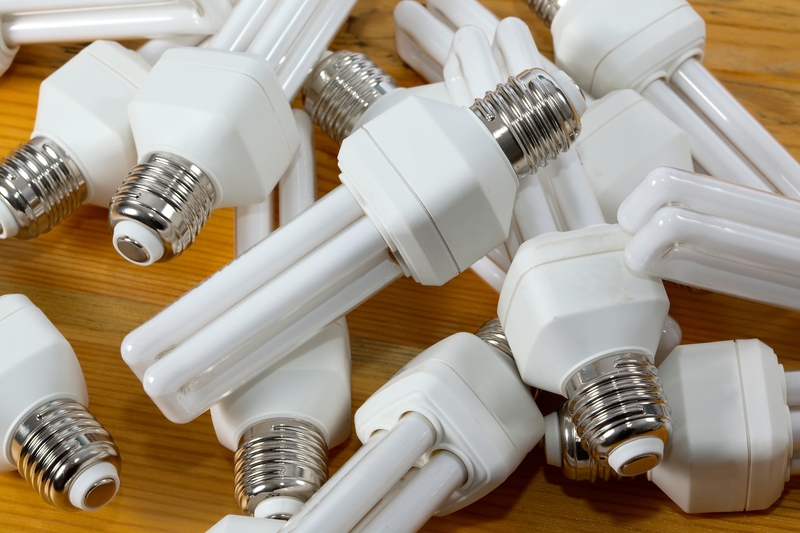Harnessing Creativity to Teach Kids About Recycling
Recycling is one of the cornerstone habits for building a sustainable future, yet instilling its importance in young minds can be challenging. Fortunately, with the power of creativity, parents, educators, and community leaders can make recycling education not only memorable but also enjoyable. This comprehensive guide explores effective methods, engaging activities, and strategic approaches to harness creativity in teaching kids about recycling.

Why Teaching Kids About Recycling Matters
Before diving into creative techniques, it's essential to understand why children's recycling education is crucial. Early environmental education fosters lifelong eco-friendly habits and helps children appreciate their role in protecting the planet. Through fun and creative initiatives, kids are more likely to see the value of recycling and embrace it as a daily practice.
- Promotes Environmental Awareness: Awareness at an early age encourages a sense of responsibility and stewardship for nature.
- Builds Good Habits: Kids who learn about recycling early are more likely to become environmentally conscious adults.
- Encourages Problem-Solving: Understanding the recycling process sharpens kids' critical thinking and creativity.
- Inspires Community Engagement: Young people often inspire families and communities to adopt greener habits.
The Power of Creativity in Recycling Education
When recycling is presented as a dull chore, kids may dismiss its impact. However, creative teaching methods ignite curiosity, encourage participation, and help children make meaningful connections to the world around them. Let's explore how harnessing creativity can transform recycling lessons for kids.
Benefits of Creative Recycling Activities
- Enhanced Memory Retention: Fun, hands-on activities help kids remember important concepts longer.
- Increased Engagement: Games, projects, and stories hold kids' attention and foster excitement.
- Personal Connection: Creative projects allow children to see how recycling fits into their own lives.
- Peer Learning Opportunities: Collaborative activities encourage teamwork and idea-sharing.
Creative Methods to Teach Kids About Recycling
1. Recycling Through Art and Craft Projects
One of the most effective and enjoyable ways to teach children about recycling is through recycled crafts. By transforming everyday household waste into art, kids learn about materials, sorting, and reuse--all while expressing their creativity. Here are some exciting recycling art ideas:
- Container Creations: Use used bottles, cans, and boxes to build robots, animals, or vehicles. This not only teaches sorting but also sparks imaginative play.
- Eco-Friendly Jewelry: Let kids turn bottle caps, newspapers, or old buttons into unique necklaces and bracelets.
- Cardboard Cities: Save shipping boxes and let children build their own cities or playgrounds.
- Magazine Collages: Instead of tossing old magazines, provide scissors and glue for eco-themed collages.
Pro Tip: Organize a 'Recycled Art Show' at school or in your community, allowing kids to showcase their creations and share what they've learned about recycling and upcycling.
2. Interactive Recycling Games and Challenges
Learning through play is a tried-and-true educational methodology for children. Incorporate recycling into games and challenges to make the topic approachable and fun. Some ideas include:
- Sorting Relay Races: Fill bins with mixed clean recyclables and challenge teams to sort items into the correct containers under a time limit.
- Recycling Bingo: Use a bingo board with recyclable items (plastic bottle, paper, can, etc.). Kids mark off items as they spot them around the classroom or at home.
- Recycled Treasure Hunt: Hide various recyclables and non-recyclables. Kids must find and correctly identify which items can be recycled.
- 'What Happens Next?' Story Games: Give kids a scenario (e.g., "A soda can is finished--what next?") and have them create or act out the recycling journey.
3. Storytelling and Recycling-Themed Books
Stories captivate young minds, making them excellent tools for introducing environmental concepts. Choose from a wide library of children's books about recycling or encourage kids to write their own recycling stories. Here are a few favorites:
- Michael Recycle by Ellie Bethel
- The Adventures of a Plastic Bottle: A Story About Recycling by Alison Inches
- Why Should I Recycle? by Jen Green
After reading, engage students in discussions or let them illustrate their version of the story's ending, with a focus on how proper recycling can change communities and the planet.
4. Science Experiments and Hands-On Learning
Science experiments offer a fascinating window into the 'why' and 'how' of recycling for children. Through hands-on activities, kids witness firsthand how recycling reduces waste and conserves resources. Some popular experiments include:
- Paper Recycling: Tear used paper into small pieces, soak in water, and blend to create pulp. Kids can use screens to mold new sheets of recycled paper.
- Bottle Composting: Create mini compost bins in clear bottles to observe the breakdown of organic materials.
- Magnet Sorting: Let children use magnets to separate metal from other waste, demonstrating how recycling plants process materials.
This hands-on approach helps demystify the recycling process, making it more relatable and impressive to young learners.
5. Collaborating with the Community
Encourage kids to participate in community recycling initiatives such as clean-up events, recycling drives, or visits to recycling centers. Newsletters and announcements about local recycling competitions or "green days" can also motivate students to adopt sustainable habits.
- Coordinate "Adopt-a-Street" events where children clean local areas, sort waste, and experience recycling in action.
- Partner with local businesses to give presentations or sponsor recycling-themed art or essay contests.
- Invite guest speakers, such as sanitation workers or environmental activists, to share real-world recycling stories and inspire kids.
Integrating Recycling Habits into Daily Life
Creativity is most effective when paired with routine. Help kids blend recycling into everyday activities by providing accessible recycling bins, modeling good habits, and offering gentle reminders. Consider these strategies to reinforce recycling at home and at school:
- Visual Cues: Label recycling bins with clear pictures and instructions to make sorting easy and intuitive.
- Routine Reminders: Integrate recycling tasks into daily or weekly schedules, such as 'Recycling Wednesdays' in the classroom.
- Positive Reinforcement: Offer praise, certificates, or small rewards for consistent recycling behavior.
- Family Involvement: Assign recycling roles during family chores, encouraging teamwork and shared responsibility.
Using Technology to Engage Young Recyclers
Today's tech-savvy kids respond well to digital tools. Take advantage of educational apps, interactive websites, and online videos to supplement your creative teaching toolkit. Some high-quality resources include:
- Interactive Recycling Games: Websites like Recycle Hero or EcoKids feature fun, educational games about sustainability and recycling for kids.
- Animated Videos: Educational YouTube channels often have short, engaging clips explaining the recycling process and its importance.
- Virtual Field Trips: Many recycling facilities and museums offer online tours, giving students an inside look at how waste is processed and repurposed.
Teaching Recycling through School Curriculum
To ensure long-term impact, recycling should be a consistent part of the educational curriculum. Blend creative recycling activities with science, art, social studies, and even math lessons. Examples include:
- Math: Calculate the difference in waste volume before and after a school recycling drive.
- Science: Study the life cycle of materials like paper, plastic, or glass, emphasizing how recycling conserves energy and resources.
- Art: Design posters or murals that advocate recycling and sustainability in the school environment.
- Social Studies: Research how different cultures manage recycling and environmental issues.
Addressing Common Kid Questions about Recycling
Kiddos are naturally inquisitive. It's vital to create an open environment where they can ask questions and express concerns about recycling. Here are smart, child-friendly responses to common queries:
-
Q: Why do we have to separate the trash?
A: Separating waste helps recycling centers turn old things into new things more easily. It keeps our earth cleaner and saves energy. -
Q: What happens to things I recycle?
A: Recycled items are taken to special factories where they are cleaned and changed into new products--like playground equipment, t-shirts, or even bikes! -
Q: Can everything be recycled?
A: Not everything, but many things can. Items made from paper, metal, plastic, and glass are common recyclables. It's important to check labels and follow your town's recycling rules.
Overcoming Barriers to Recycling Education
Even the best creative activities can face hurdles. Common challenges include limited time, resources, or a lack of local recycling infrastructure. To overcome these obstacles, try:
- Collaboration: Work with other teachers, parents, or organizations to share materials and ideas.
- Utilizing Digital Tools: Leverage free or low-cost online resources for lesson plans and printable activities.
- Flexibility: Start small with a few engaging activities and build on your success as interest grows.

Encouraging Lifelong Green Habits
Fostering a culture of recycling and sustainability in children requires patience, persistence, and, above all, creativity. By integrating fun, hands-on activities, children's literature, and digital resources, adults can spark curiosity and build a genuine passion for protecting the planet.
Remember, when you harness creativity to teach kids about recycling, you're not only reducing waste--you're shaping an entire generation of eco champions.
Conclusion: Creative Recycling Education Transforms Futures
Teaching kids to recycle is about far more than reducing landfill waste. It's about empowering the next generation with the knowledge, skills, and passion needed to preserve our environment. Harnessing creativity is the most effective way to reach young minds and make recycling lessons stick. Whether through art, technology, games, or community projects, there are endless ways to make sustainable living both fun and unforgettable. Start today, and watch as your creative efforts help build a greener, healthier tomorrow for everyone.
Get Started: Fun Recycling Activities for Your Kids
- Host a recycled art day.
- Experiment with homemade paper recycling.
- Create a recycling trivia night for the family.
- Take a virtual field trip to a recycling center.
- Start a classroom or neighborhood recycling competition.
Harnessing creativity to teach children about recycling isn't just possible--it's powerful. Dive in, make it playful, and watch your eco warriors blossom!